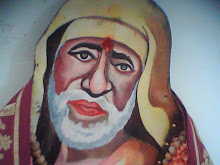Manika Prabhu(1817 -1865 A.D.)

Manohara Nayaka Harakude, a Srivatsa gotra, Desastha Brahmin and Baya Devi of Ladavanti were the parents of Manik Prabhu, their illustrious son. Harakude and Baya Devi were very pious and they did Parayana of Guru Charitra for over sixteen years continously with rigid observance of the rules of worship indicated in Guru Charitra. Afterwards Lord Dattatreya appeared in a dream gave darshan to Harakude and Baya Devi and asked them to choose a boon. Both like Atri and Anasuya, desired to have a son like the Lord and nothing else. Thus the birth of Manika Prabhu came into existence in the world in the year 1817A.D. From the very childhood Manika Prabhu was known for his worth in yoga, enrapturing his mother Baya Devi like Yasoda Devi, the mother of Lord Krishna by his divine nature. When on Thursdays people flocking together and approaching the child for something or other and their wishes being fulfilled was an exciting scene. Child Manika Prabhu, though he never attended a school, learnt many languages like Kanarese, Urdu, Marathee, Persian, Sanskrit by himself and even acquired proficiency in them.
Baya Devi was widowed just when Manika Prabhu was ten years old and so his maternal uncle was his guardian. Manika Prabhu was found wandering here and there doing things quite contrary to the sacred traditions of Hindu religion. For instance, once Manika Prabhu was found putting all his clothes and his chappals on the head of Maruti idol in a temple. His settlement at Manikanagar is quite interesting. Once a certain Brahmin family started for Darshana of Manika Prabhu. On their way at Humnabad there was a temple and there they were resting for the night without knowing that it was the meeting place of thieves. That night a batch of dacoits visited the temple as usual and finding the family resting therein, wanted to loot them. The Brahmin family startled by their presence began crying out "Hei ! Manika Prabhu, Manika Prabhu" for helping them out of the great danger they could sense.
Soon a miracle happened and the thieves saw a. great yogi, bedecked with gorgeous jewellery in front, standing at the threshold of the temple. The thieves preferred to loot the person with plenty of jewellery over his body than the humble brahmin family. When the thieves ran after him he disappeared and they found 'themselves benumbed completely, and slowly they sneaked out away, lest something more harm should happen to them. In fact, Manika Prabhu appeared in person there soon after and made the place his permanent abode. The forest surounding the temple was cleared and soon a township sprang up. The place became in a little time, a centre where people saw both renunciation and enjoyment harmoniously blended. Manika Prabhu never ate the rich food prepared for the devotees thronged, but always lived on Madhukari food brought by his disciples, begging from house to house. Some times he went for alms in that way.
The paradox was people could see a rich beggar with all his royal pomp was full of simplicity and humility. In him one could see, the effulgence of a saint with the halo of worldly luxury, completely detached. An unbroken celibacy even amidst women and wealth was conspicuous in him strictly avoiding association with ladies in loneliness. He showed to the world that even ladies with proper direction could attain the highest knowledge of Atman the Absolute, if the director is careful about his ownself.
He could freely mix with non Hindus, specially Mohammedans, for he evinced equal care and interest in the welfare of one and all. Thus like Nrisimha Saraswati he influenced both the Hindus and Mohammedans alike. The founder of Sikhism has considered Manika Prabhu as "an incarnation of Dattatreya", while Col.Alkot. of Theosophical Society, Basaveswara the founder of Lingayat sect, gave glorious accounts of Manika Prabhu, as an incarnation born in the world for the good of the people. His wisdom, catholicity and foresight in handling different kinds of people under one banner, is strikingly, significant. In fact his whole life passed in such activity of longing in a fusion of so called opposites in faiths and cults. It is (Sakalamata sthapana) universally of religions, his seeing no conflict between activity (Pravitti) and inaction (nivritti) was his greatest contribution to the society and mankind.
Manika Prabhu had many contemporaries. Of course the followers and disciples of each saint consider them as different Avataras of Dattatreya. For instance, Sri Baka Prabhu among Lingayats, Sri Alam Prabhu among Yavanas, Sri Swami of Akkalkot were all illustrious in their own way. These saints who were contemporary always considered the worth of one another and never talked of their own greatness. They never cared for fame. Though, inspite of their dislike for it, it came to them and clung to their names even after their departure from the world. They were born for a particular mission and they accomplished it in their own way by giving things to the needy and enlightenment to those who sought for it. For instance, Manika Prabhu in the task of enhancing the power of Sidhas, helped Hamsaraja Swami in his pursuit of self realisation. Manik Prabhu's connection with Sidhas, like Alam Prabhu, Revana Siddha, Suraja Sadananda was mysteriously startling.



1 comment:
初次拜訪,踩踩您的格子,跟您拜個碼頭囉~~.................................................................
Post a Comment